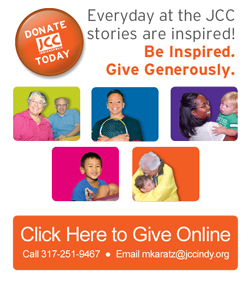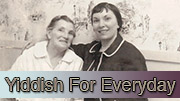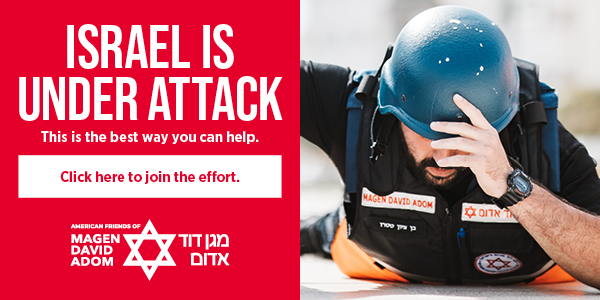Over winter break my brother Benzion’s oldest son and his wife traveled by van for a one day visit from Buffalo, N.Y., with six of their seven children for a family reunion. In a conversation with my niece, I told her about this column below that we had published.
On the Subway
By Aryeh Ben David
I am taking the Broadway #1 train from Penn Station to Van Cortlandt Park in the late afternoon. Van Cortlandt Park is the last stop on the line. About 3 stops from the end, everyone in my car exits. I’m left alone. The door opens from another car. Enters a 30-something year old guy, big, and obviously drunk. I’m at the other end of the car.
He stumbles over to me. I’m getting a bit nervous. He’s bigger than me, and I’m a worrying kind of guy. He leans over close to me, about 5 inches from my ear, and whispers: “Tzedakah. You know what tzedakah is?”
Surprised and amused, I answer “yes.”
He waits. I pause. Then I take a dollar out of my pocket and give it to him. He begins to stumble away. I don’t know what happened to me, but I call after him, “Hey. I gave you something. Now you give me something.”
He looks back at me, not understanding. I say it again, “Give me something.” I call out, “I gave you tzedakah. You give me a blessing.”
He looks puzzled.
I say, “I have a kid who just had 2 knee operations. Do you have a blessing?”
He says, “I bless you that your kid will be healthy.”
Then he takes a step to walk away and stops. [He] puts his hand on the subway pole, turns back to me and says, “And I give you a blessing, that whatever happens to your kid, God will give you the strength to handle whatever it is.”
Wow. I was overcome with emotion. I had given him a dollar from my pocket. He gave me a blessing from his heart.
The train stopped. We said goodbye to each other. “Goodbye friend, thank you.” “Goodbye friend, have a good day.”
At the moment, I didn’t know what propelled me to ask him for a blessing. Looking back, I understand it like this:
Asking for something – a cigarette or money – can be a very degrading and humiliating experience. He had given me the chance to be a giving person – to give to him.
Though I hesitated and didn’t give with a full, open heart or smile, after giving something to him – I actually felt good about myself. I wanted to offer him, too, the chance to give something and feel good about himself.
In the end, he gave me so much – a moment of netzach, of eternity – a moment that I will never forget. Our souls are wired to give. That’s how the Creator created us. Sometimes the kindest act we can do is to receive – to allow someone else to give to us.
Aryeh Ben David founded and directs Ayeka (www.ayeka.org.il) Center for Soulful Education.
After the column came out, I saw the following quote by Shlomo Carlebach: “You are not doing a favor to those in need [when you give them charity]; they do you a favor by turning you into a benefactor.” (Found on p. 218 of the book, Kol Chevra: Love & Healing, published on the 22nd anniversary of his yahrzeit.)
This column reminded my niece of a story which is appropriate for this bridal edition. I will tell it as I remember it and not necessarily as it is written (Talmud Bavli, Shabbos tractate, Page 156, second side).
When Rabbi Akiva was blessed with a baby girl, he was told by an astrologer that she would die on her wedding day. As she grew up and got closer to the age for marriage, he got more and more anxious and kept putting off finding a suitable mate for her. Finally one day she came to him because she couldn’t wait any longer. He reluctantly agreed, found a match for her and a ceremony was planned.
On the day of her wedding the bride was getting ready for the ceremony. After she put on her dress, she was looking for a way to keep her hair off her shoulders. She found a hair pin and by twisting her hair around and pulling it up, she was able to keep her hair up by inserting the pin.
After the wedding, a lovely reception was held. At these celebrations, it was the custom to have a table for poor people to come and sit for a nice meal. They had all done this, but a little later the bride looked over and saw that one poor person had come late and no food was left. She looked around and saw no one else noticed this so she went over herself and made sure this person had plenty to eat.
When she was getting ready for bed that night, she took the pin out of her hair and was looking for a place to put it. She saw a hole in the wall so she stuck the pin in there, telling herself she would find a better place for it later. The next morning when she pulled the pin out, a dead snake was on the other end.
She was alarmed by this so she went to tell her father. He asked her to tell him in detail everything she had done the day before. When she told him about feeding the poor person who came late, he was very relieved because charity is one of the virtues that can save one from death. Her life had been spared.
Then I told my niece her story reminds me of The Unetaneh Tokef prayer from the High Holy Day liturgy that says, “On Rosh Hashanah it is written and on Yom Kippur it is sealed who will live and who will die, who will perish by fire and who by water….With Teshuvah (Repentance) and Tefillah (Prayer) and Tzedekah (Righteous Acts) we can transform the severity of the decree.”
I am thankful for such a meaningful conversation with family I rarely see and for so briefly this time!
Jennie Cohen 2-7-18






